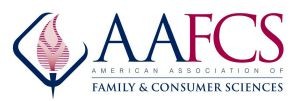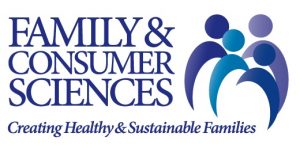Consumer & Family Scientist
Create awareness of the family as a major player and unification tool for stronger communities, nations, and healthier earth. Teach family values and ethics through inter-generational modeling and storytelling to promote family and community healing. Promote spiritual aspect of family and parenting.
CFCS: Certified Family & Consumer Scientist
Bachelor degree required to sit for the 8 National Exam Competencies, www.aafcs.org
AMORC: Child Culture Series; I-Prenatal, II-Infancy, III-Early Childhood
Ancient Mystical Order of Rosae Crucis
NTE: National Teachers Exam in Early Chilhood
Life Certified: Mother of Three Children


What do Family & Consumer Scientist focus on?
Issues relevant to today’s individuals and families and skills critical to successful living and working in the 21st century global society.[1]
Often overlooked and undervalued, the importance and complexity of skills required to successfully create and sustain a “family” that reflects positive social, financial, and spiritual values is a specialty worthy of defining and understanding.
Family and consumer sciences (FCS) is the comprehensive body of skills, research, and knowledge that helps people make informed decisions about their wellbeing, relationships, and resources to achieve optimal quality of life. The field represents many areas, including human development, personal and family finance, housing and interior design, food science, nutrition, and wellness, textiles and apparel, and consumer issues.[2]
Where do they practice and how do they fit into their communities and countries?
Today’s FCS professionals practice in multiple settings. They are early childhood, elementary, secondary, university/college, and Extension educators, administrators and managers, human service professionals, researchers, community volunteers, business people, and consultants who address the issues most important to our quality of life.[3]
What do Family and Consumer Science practitioners believe in?
Core Values:
Believe in the family as a fundamental unit of society.
Embrace diversity and value all people.
Support life-long learning and diverse scholarship.
Exemplify integrity and ethical behavior.
Seek new ideas and initiatives and embrace change.
Promote an integrative and holistic approach, aligned with the FCS body of knowledge, to support professionals who work with individuals, families, and communities.[4]
What do they study?
Here are the areas of study and exam standards from Family & Consumer Sciences Examination Study Guide)[5]
1) Integration of Foundations in Personal, Family, Community, & Career Roles
Cultural, economic, and gender influences on families, work, and society; the interrelationships among career decisions and personal/family life, including parenting and care giving; historical and current events, public policies, and research results and their effect upon the family, community, and work environment; and the management processes, resources, and procedures required for maintaining an effective family and consumer sciences program.
2) Family Studies and Human Services
The areas of personal development, relationships, and management of work and family to enhance quality of life across the life span, and understands career opportunities in family studies and human services.
3) Human Development, Education, and Services
Human growth and development, parent/guardian/educator roles and responsibilities, and career opportunities in human development, education, and services.
4) Nutrition, Wellness, and Food Science
The principles of food science, food technology, and nutrition and their relationships to growth, development, health, and wellness; applies this understanding to support informed decision-making that promotes good health; and understands career opportunities in nutrition, wellness, and food science.
5) Food, Lodging, and Hospitality
The food, lodging, and hospitality industries, and understands career opportunities in the food, lodging, and hospitality industries.
6) Consumer and Resource Management
Consumer practices, consumer responsibilities, and resource management processes; how these affect and are applied to personal, family, and work life; and career opportunities in consumer and resource management.
7) Textiles and Apparel
The design, production, marketing, consumption, and maintenance of textile and apparel products, and understands career opportunities in the textiles and apparel industries.
8) Environmental Design
The design and construction of interior and exterior environments, and understands career opportunities in the housing, design, furnishings, and equipment management and service industries.
_____________________
[1] “Frequently Asked Questions,” AAFCS Family and Consumer Sciences, accessed June 15, 2013, http://www.aafcs.org/AboutUs/FAQ.asp.
[2] “What is the FCS?,” AAFCS Family and Consumer Sciences, accessed June 15, 2013, http://www.aafcs.org/AboutUs/FCS.asp.
[3] Ibid.
[4] “AAFCS Code of Ethics,” AAFCS Family and Consumer Sciences, accessed June 15, 2013, http://www.aafcs.org/AboutUs/CodeEthics.asp.
[5] “Study Guide,” American Association of Family and Consumer Sciences, accessed 2008, http://www.aafcs.org (Family and Consumer Sciences Study Guide” page deleted).